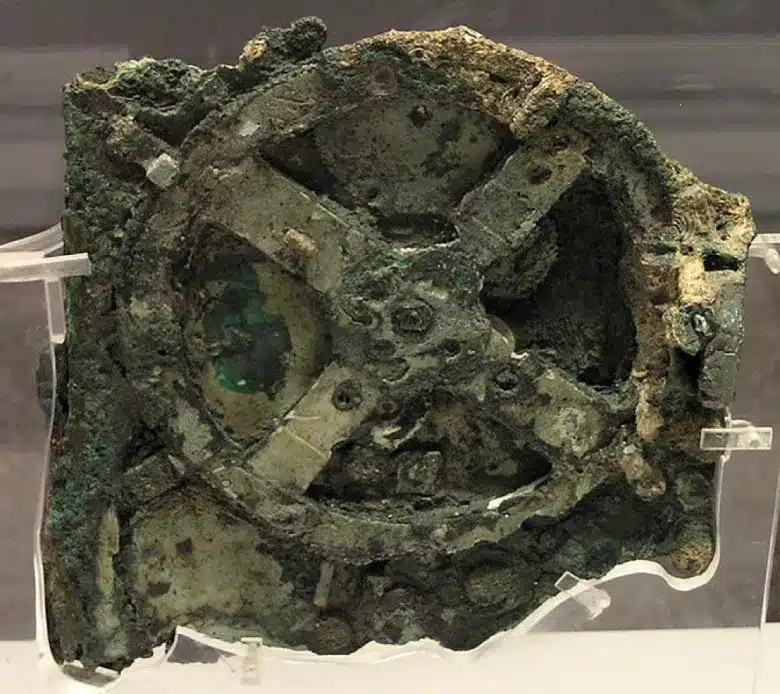By: Kerry Ding
In a study published this month, using techniques researching gravitational waves, scientists argued that the Antikythera mechanism has a lunar calendar. This ancient computer, known as the Antikythera mechanism, was made 2,200 years ago.
The Antikythera mechanism has inspired and awestruck scientists since 1901 when it was discovered on a shipwreck near a Greek island. The mechanism included instruments that tracked the cycles of the moon and sun, the planets and constellations, predicting eclipses, and marking down important dates for events like the Olympic games.
This new study tries to challenge an important assumption about the Antikythera mechanism. Instead of there being a solar calendar, the study proposes the holes show that it is a lunar calendar. The authors of this study did this by using the methods from gravitational wave astronomy, a field that studies the ripples of spacetime from cosmic events.
Professor Graham Woan at Glasgow University and Joseph Bayley, a research associate, have concluded that there are 354 holes in the Antikythera mechanism. This strongly suggests that the solar calendar assumed to be in the mechanism was actually a lunar calendar. This was because there was believed to be 365 holes for the days of the year.
However, experts of the device are skeptical of the study.
“It’s just wrong,” said Tony Freeth, who is an expert of the Antikythera mechanism. The current understanding is that the mechanism tracks solar and lunar calendars, yet the new study is arguing the solar calendar is a lunar calendar. Dr. Freeth argues that since the device already has an extremely precise lunar calendar, there is no point in making a second one.
“Why put a second lunar calendar on the mechanism when you’ve already taken a lot of trouble to construct a lunar calendar of great accuracy and sophistication?” Dr. Freeth said to the New York Times.
This wasn’t the first time that the solar calendar was questioned. It was first called into question by a 2020 study by researchers and enthusiasts.
These controversies show how little we know about the ancient peoples and their sophisticated technology. It means that what we know isn’t written in stone and our knowledge of this subject is constantly changing.











